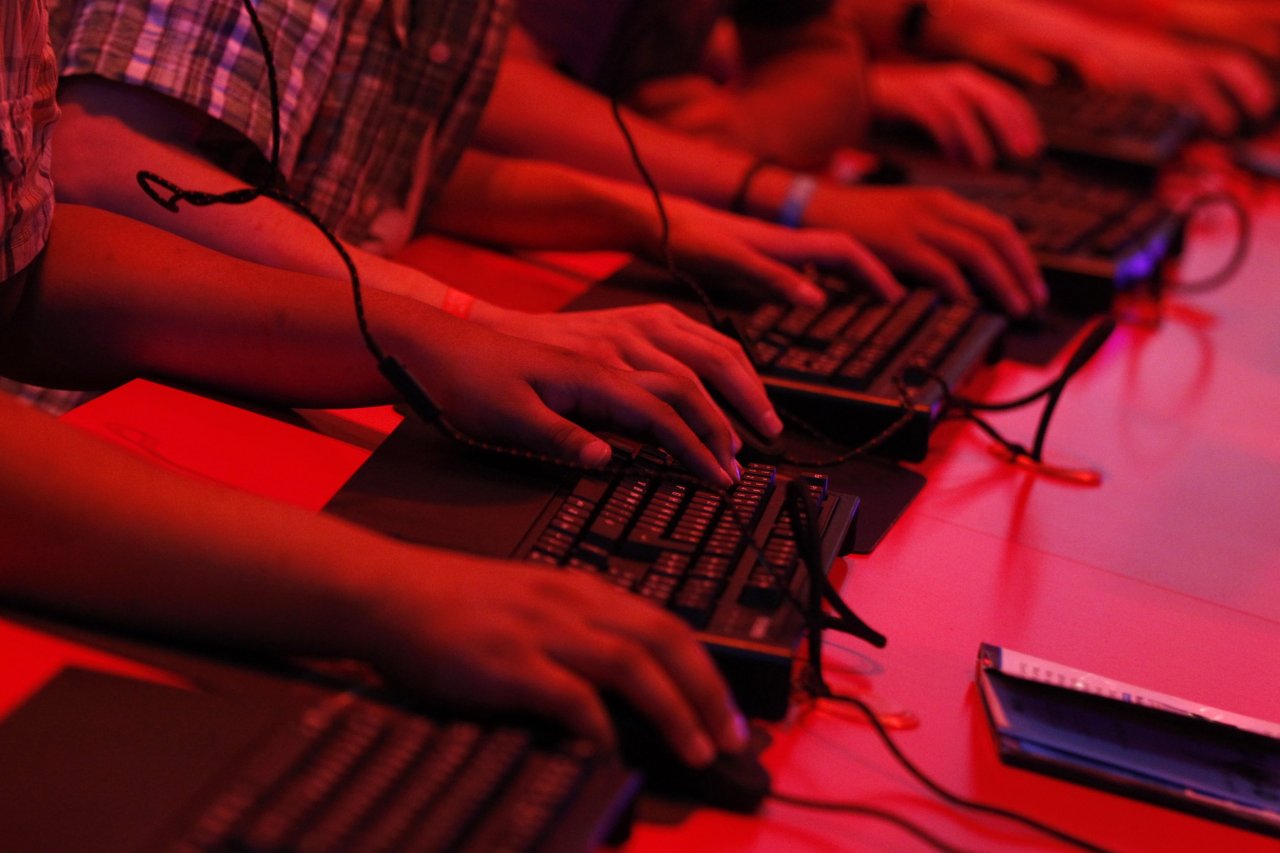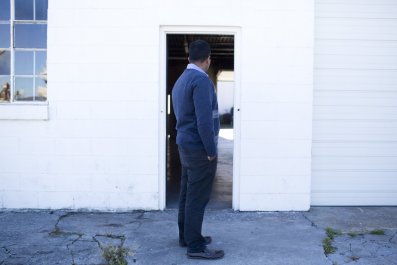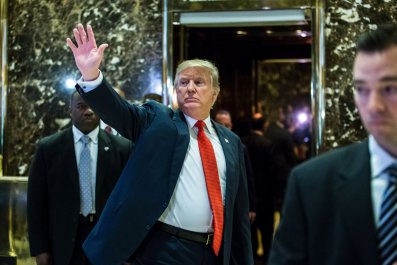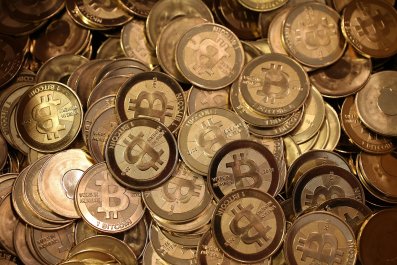For 240 years, Americans have believed anybody could be president. This November, the internet finally made that happen.
People voted for Donald Trump for many different reasons, but all of his supporters had to believe, at least on some level, that a man who is willfully ignorant of the president's job—and who pitched his ignorance as a feature, not a bug—can work the levers of the Oval Office just fine. For the first time in history, voters in the U.S. said that professional experience is not necessary for perhaps the most complex job in the world.
Doubling down on that, Trump has tapped Dr. Ben Carson to do a Cabinet job for which he has no qualifications. Carson got this far in the Republican Party by portraying himself as a clueless politician instead of an Ivy League–educated neurosurgeon. He once tweeted, "It is important to remember that amateurs built the Ark and it was the professionals that built the Titanic." If this anti-professional trend works in reverse, politicians can watch a few YouTube videos and pull off brain surgery.
We're witnessing "the ascendency of the notion that the people whom we should trust the least are the people who best know what they are talking about," writes Charles Pierce in his book, Idiot America. Anti-professional sentiments are not new, of course. In the early 1960s, historian Richard Hofstadter felt driven to write Anti-Intellectualism in American Life, which won the Pulitzer Prize. But now it seems Hofstadter's observations were like feeling a few drops of rain at the front end of a hurricane and wondering if you need an umbrella. He had no idea how bad it was going to get.
Why this war on pros? A lot of the blame falls on the internet and much of what has been built on it—your Googles and Twitters and WebMDs and Expedias. Look how the net has affected medicine. As the techies would say, the internet democratizes information: It sets free info that companies, governments and professionals used to horde and wield for power. So in many ways, democratizing information is good. It means a car salesman can't swindle us because now we have access to car-pricing data. And it helps us be better informed about our health and medical care.
Related: Protecting the internet from Trump
Yet there are unintended consequences to setting information free. We used to revere doctors and, for better and sometimes worse, implicitly trusted their judgment. Now we show up at the doctor's office after pre-diagnosing ourselves on the web. One poll by the Pew Research Center found that 72 percent of Americans search for health information online, and Google said earlier this year that about 1 percent of its total searches are for medical symptoms. Doctors have a term for people who come in after Googling themselves sick: cybercondriacs. The result of all this health Googling is an erosion of esteem for doctors. Now that we can easily know more about medicine, we're less impressed by what they know.
In my profession, the internet brought blogs and podcasts and other low-barrier ways to reach the public. Anybody could set himself or herself up as a journalist, and just about anybody did. Over time, the internet helped devalue the journalism profession to the point where today Gallup reports that public confidence in mass media "has dropped to its lowest level in Gallup polling history."
The same dynamic has pummeled all sorts of professions. If you can find out anything about travel on Expedia or TripAdvisor, why believe a travel agent knows anything of value? If something is wrong with your bathroom pipes, you can find an online video showing how to fix it. So what's the value of a plumber? The web is a vast constellation of free tools and information that allow you to do yourself what you used to pay someone to do. Makes you think twice about calling an expensive pro.
This is only going to get more prevalent. Artificial intelligence is making web-based tools smarter, which means we'll soon get not just information but expertise built into free or cheap online services. Sooner or later, some startup is going to encourage us to employ an AI lawyer to work through our divorce agreement so we don't have to pay a human $300 an hour. The Maker movement—do-it-yourself engineering—is all about democratizing invention and production. If Noah were around today, he'd come home from a Maker Faire, buy a 3-D printer, download free open-source boat-building hacks and then bark at nautical engineers to get out of his face.
Even the way we work is devaluing professionalism. We're supposedly entering the net-driven gig economy, defined by doing lots of different kinds of jobs in small batches. You might do freelance coding for a few hours a day, rent out your room on Airbnb and sell hand-thrown neti pots on Etsy to somehow claw out a living. If that's the path to success in the coming decades, it means the value is in knowing a little about a lot of things and a lot about not much. If you work for a corporation, same deal. Companies these days love Agile development, which throws people together in teams that do incremental work at a fast pace. In such an environment, deep knowledge can make you seem like a dinosaur. Fast knowledge—basically, fast-food professionalism—wins you a raise.
Granted, popular culture has never cried too hard over the comeuppance of the professional class. The 1939 movie Mr. Smith Goes to Washington was all about a rube who gets appointed to the Senate and shows up the veterans. (Hey, Hollywood: when's the Mr. Trump Goes to Washington sequel coming out?) Today, when we hear about the possibility of AI-guided self-driving trucks ransacking truck driver jobs, the drivers get sympathy, as they should. Talk about AI knocking off lawyers, though, and anybody in the room who's not a lawyer will break into a jig.
How will all this play out? I've heard some technologists say we're ultimately going back to a self-sufficient way of life that echoes the pre-industrial age. In those days, people did everything at home because they had to—the nearest professional might have been a two-day horse ride away. So you made your own clothes, built your own furniture, analyzed your own finances, amputated your own gangrenous toe.
In the future version of that, you'll do everything at home not because you have to but because you can, and because you think professionals suck. You'll fire up a cloud-based service to scan your body and help you design your own clothes to perfectly fit you. You'll 3-D-print furniture parts and bolt them together, Ikea-style. Some AI Schwab account will manage your money. And your R2-D2 robot armed with a laser will tap into Mayo Clinic software and deal with that ugly toe for you.
Maybe that will turn out to be a better way of life, but consider this: Kanye West will be president.
Read more from Newsweek.com:
- How robots will save the global economy
- Congress just gave you the right to leave a nasty Yelp
- Why Silicon Valley should create the 'smart' party






















